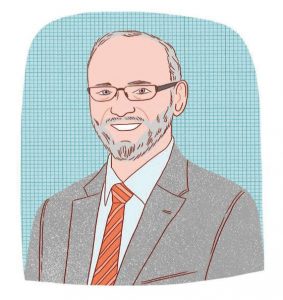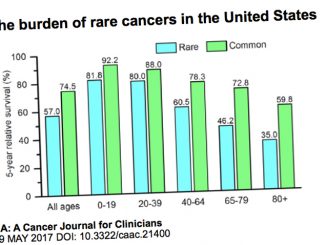A n estimated 50,000 people who die from cancer every year could still be alive if the quality of diagnosis and care in European countries with the poorest survival rates were as good as the median across Europe. That number rises to 100,000 lives per year if countries with the poorest outcomes could improve to the 75th percentile for Europe. Even among the best-performing cancer systems, some sections of the population have better access than others to high-quality diagnosis and care, depending often on where they live, their socioeconomic status, age and other factors.
These disparities are not OK, all the more so because we know what has to be done to achieve the best outcomes: active programmes on prevention, lifestyle changes and screening; prompt access to diagnostic testing; prompt access to excellent specialised multidisciplinary care (including supportive, survivorship and palliative care); programmes to promote access for disadvantaged groups; and research and innovation. 
We know this thanks to decades of high-quality work on clinical trials, service organisation, clinical epidemiology and comparative effectiveness research, which have been analysed, carefully considered, collated and presented by oncology professionals, cancer researchers, patient advocacy organisations, and governments, individually and together.
Much of this is summarised in documents such as The European Cancer Patient’s Bill of Rights (ESMO Open 2017, 1 (6) e000127) and the publications coming out of the EU Joint Actions on cancer (European Guide on Quality Improvement in Comprehensive Cancer Control, Boosting Innovation and Cooperation in European Cancer Control). A vast library of evidence-based guidelines and expert consensus recommendations have been published on specific aspects of diagnosis, treatment and care – most recently, a cancer-type-specific series of Essential Requirements for Quality Cancer Care.
So why are so many patients still being let down?
Resources clearly matter. Yet while outcomes are generally better in wealthier countries, plenty of countries achieve better outcomes than others for similar or lower health spend. Prompt access to diagnosis and multidisciplinary specialised cancer care are within the reach of most healthcare systems. If patients are diagnosed early and managed well, outcomes are better and less is spent on re-treatment and end-of-life care.
A bigger barrier may be overcoming resistance to change and innovation, whether that comes from health professionals protecting their own interests or simply ‘routinism’. Changing the way things are done can be uncomfortable and take time and effort, so it’s easier to stick to the old ways, and blame substandard outcomes on lack of resources. Efforts to improve practice can also be wasted by trying to ‘reinvent the wheel’ instead of learning from the experiences of others and looking around for evidence-based best practice.
Our patients deserve better. It’s up to all of us to make sure they get it. We all have a duty to look critically at how we deliver care, to ensure that readily affordable changes and well-evidenced innovations are quickly taken up. We need to work with patients and advocates to make clear what we expect from governments. We need to encourage young leaders to become champions for change, and provide them with best-practice literature in a brief format designed for practical application, and give them the skills and the networks to help them make the changes that will help end this needless suffering and death.
Peter Selby is Professor of Cancer Medicine at the University of Leeds.
He played a leading role in developing the landmark 1995 Calman–Hine report into improving cancer services in England and Wales,
and is co-author of the European Cancer Patient’s Bill of Rights





